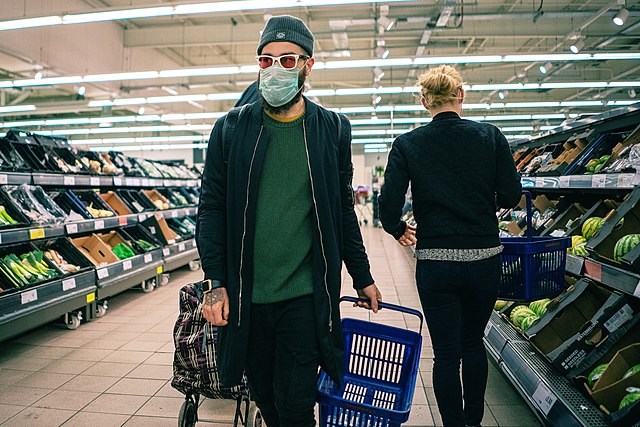The use of face mask is mandatory on public transport as of Monday and recommended in public places and in spaces where social distancing cannot be properly observed.
In the daily press conference on the coronavirus, health officials offered advice and demonstrated the proper ways to put on and remove a mask as well as information on how to wear the protective equipment.
Dr Yves Van Laethem, an infectious disease expert who is replacing virologist Emmanuel André as the Francophone spokesperson for the coronavirus task force, also offered the public advice on how to wash reusable face masks.
"It is not obvious and we really need to talk about it and the best way to talk about it is by demonstrating," Van Laethem said.
Related News
- Coronavirus: 'very unlikely' that epidemic will end in a few months
- Coronavirus: Belgium to expand testing
- Belgium in Brief: Phasing Out Of Lockdown
How to put on a face mask?
"The first thing you need to do before putting on your face mask is to wash your hands," Van Laethem said. "Either with soap and water or with a hydroalcoholic gel."
Reaching for a disposable face mask, Van Laethem began demonstrating on how to put it on correctly, stressing that it was important to try to manipulate it as little as possible.
"Touch only the mask's laces or elastics straps; avoid touching it on the part that goes over our mouth and then place it over your face in such a way that your airways, your nose and mouth, are adequately covered."
To make sure that a mask was being worn correctly Van Laethem said that the chin needed to also be under the mask's cover.
"To adjust your mask, touch it as little as possible by pinching it around the nose and pulling it down slightly over the chin to make sure it is correctly covered," he said.
https://youtu.be/rq4GRULRquw?t=1260
How and for how long to wear a mask?
"Avoid touching it as much as possible," Van Laethem said. If the mask slips down or begins falling off, Van Laethem said that it was best to readjust it by touching the outer edges of the mask.
"Don't touch the mask all over, because if the mask is contaminated you risk contaminating your hands, so the best precaution is to touch the mask as little as possible," he said.
A mask can be worn for a maximum of eight hours or for half that much in the cases of someone who needs to speak a lot.
"A teacher, for example," Van Laethem said. "This is why it is important to have more than one mask available, a minimum of two, for example, when it comes to fabric masks."
"If a mask becomes dirty or wet it needs to be replaced with another mask," he added.
How to remove a face mask?
Just like for putting it on, Van Laethem said that to be removed, masks should be grabbed by their elastic straps or laces.
"When you have removed your mask, throw it away if it is a disposable mask or store it to be washed later," he said.
"If you need to temporarily remove your mask —to eat or drink something — take it off and place it on a clean surface that you will be able to clean afterwards," he said.
How to wash reusable fabric face masks?
"Face masks should be machine washed at 60 degrees Celcius with conventional detergent — you don't need any particular disinfectants," Van Laethem said.
If machine-wash is not possible, Van Laethem said putting the face mask in a pot with simmering water or ironing it at a temperature "above that at which the virus may survive" was also an option.
Face masks should be stored in a dry and dedicated place and putting them on the fridge or freezer is "useless," he said.
"The virus can perfectly tolerate this kind of [cold] temperatures so doing so will not disinfect your mask," he added.
Keep washing your hands
"When you touch your mask, you need to wash your hands again — hand washing before and after the manipulation of face masks must become a habit," he said.
In order to avoid touching a face mask more than needed, Van Laethem recommended people to wear it ahead of an activity that requires it, "such as before going to the supermarket and once you are already back home," he said.
Gabriela Galindo
The Brussels Times

